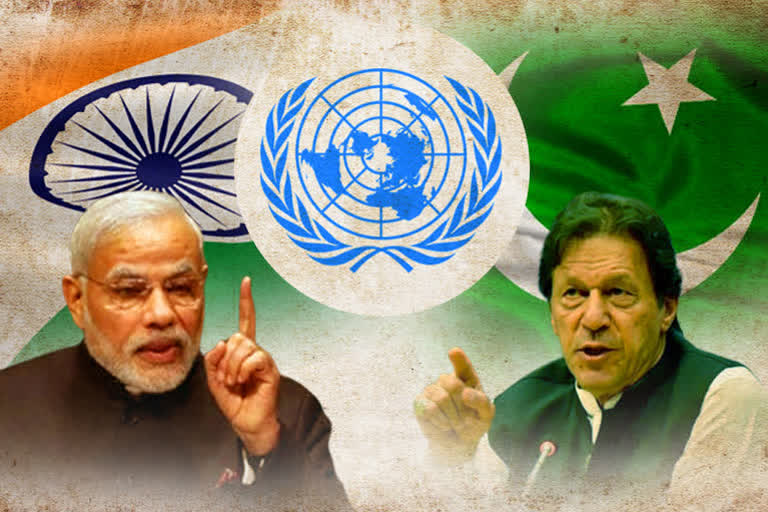New Delhi: In September 2015, world leaders adopted Agenda 2030 on Sustainable Development at the Special Summit of the UN General Assembly (UNGA). The over-arching goal of Agenda 2030 is the eradication of poverty.
Four years later, the 74th session of the UNGA debated the state of implementation of Agenda 2030 with special reference to poverty eradication, climate action, and inclusion. Under Prime Minister Narendra Modi’s chairmanship, India’s NITI Aayog’s SDG Dashboard transparently tracks the progress of India in implementing Agenda 2030’s 17 Sustainable Development Goals (SDGs).
India’s 15-minute narrative of India’s progress in achieving the targets of Agenda 2030 on Friday 27 September 2019 to the UNGA provided an impressive account. Prime Minister Narendra Modi focused on several successful initiatives which provided India, and the world, with “a new hope”. This was essentially due to the focus of India’s initiatives on empowering her poor to lift them out of poverty. The statistics behind financial empowerment (Jan Dhan Yojana), universal health coverage (Ayushman Bharat) and eradication of open defecation (Swachh Bharat) covered hundreds of millions of people. So did the scope of India’s prioritization of using biometric technology and digital platforms (Aadhar and Digital India) to accelerate development with effective governance. On climate action, the Prime Minister announced enhancing India’s target for renewable energy generation from 175 GW to 450 GW, as well as a commitment to ban single-use plastic within five years.
India’s positive narrative meant that her national achievements were “not just for the welfare of our people, but for the welfare of the entire world.” The global impact of India’s leadership had resulted in a functioning International Solar Alliance, headquartered in India. The Prime Minister proposed the creation of a global Coalition for Disaster Resilient Infrastructure (CDRI) to build infrastructure that can withstand natural disasters, providing a sustainable solution for societies facing the wrath of climate change.
While adopting Agenda 2030, world leaders had significantly underlined that without peace there can be no sustainable development, and without sustainable development there can be no peace. The Prime Minister stressed the importance of Swami Vivekananda’s message to the 1893 World Parliament of Religions of “Harmony and Peace”, and of Mahatma Gandhi’s emphasis on truth and non-violence, to ensure this objective.
